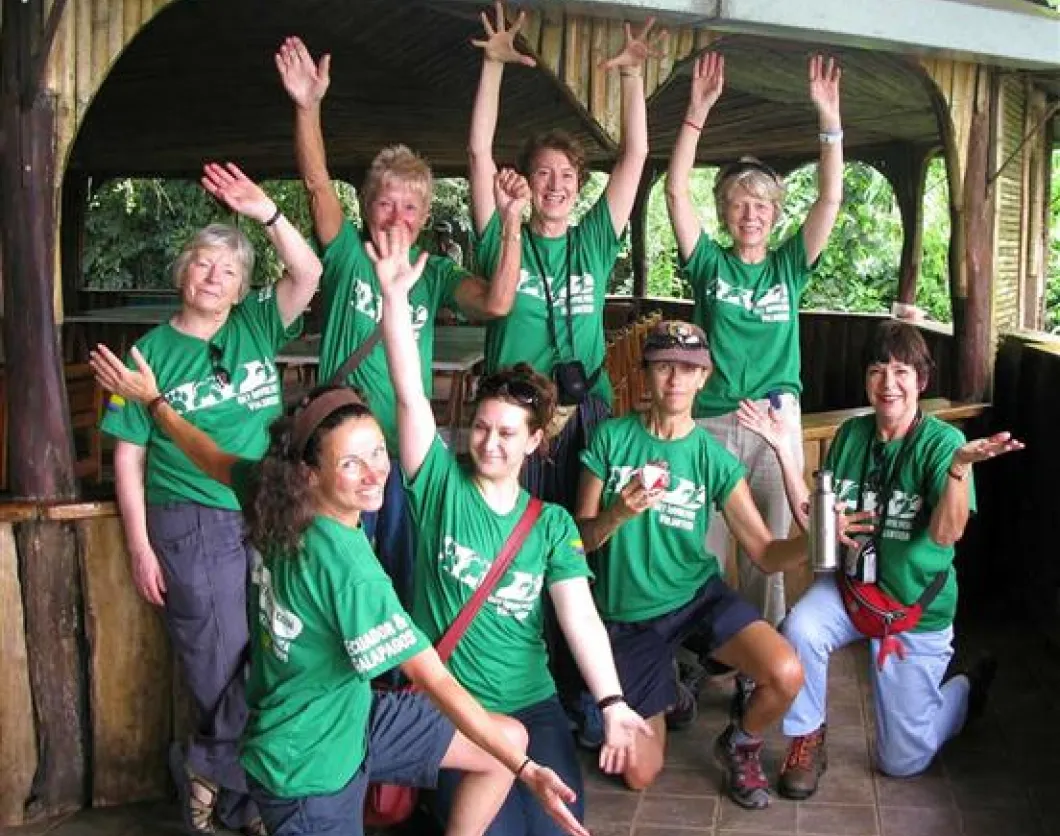It is not hard to identify volunteer needs in developing countries such as Ecuador. However, there is always a challenge in finding reliable in-country organizations with a track record of efficiently matching the willing volunteer with creative, reliable service projects.
Better yet is to discover organizations that make all living and working arrangements, and shepherd volunteers through their chosen experience (including any crisis!) from arrival to departure. I was fortunate to discover Quito-based LEAD Adventures (lead-adventures.com) whose dedicated staff carries out these services year round with a creative menu of well-researched options on the country's mainland and in the Galapagos Islands.
Launched in 2004 by Ecuadorian Enrique Torres, following years of university study and investment banking work in the U.S., the company has made arrangements for over 2,000 participants in conservation, social service, sports development and education.
Best of all, the LEAD team understands the needs and interests of adult participants, offering alternatives and customization to what they call their "Grown Up" clients, 35 and older. While the majority of clients are still in their teens and 20s, LEAD reports a rapidly growing clientele of adult travelers and family groups for certain projects. It also pays a commission for travel agent bookings.
Very reasonable prices vary from project to project usually including a comprehensive orientation at LEAD's Quito office, many meals, airport transfers, travel insurance for direct bookings only, 24-hour-a-day emergency support, and organization of Spanish classes in some locations. Volunteer accommodation varies from on-site dormitory-style out in the country to well-situated hostels and homestays in the city. Many city-based options may be customized by choice of accommodation and other support services. Volunteers may also choose to do more than one program (minimum two weeks each) to experience different projects and parts of the country.
Here is a glimpse of two experiences of my own to illustrate Ecuador options suitable for Grown Up volunteers.
A private Animal Rescue Center on the edge of the Ecuadorian has its own English-speaking volunteer coordinator from Holland, and several hand built cabins on the property. The Flores family lives on this vast jungle property themselves, treating every volunteer as an honored guest in their home and country. German Flores and his son, Jorge, are both passionate about their mission of animal rescue, rehabilitation and re-introduction to the wild where possible.
As we toured many acres of well-maintained buildings and jungle-setting enclosures, we met Chilean veterinarian, Tatiana, patiently feeding an abandoned new-born coati with a tiny milk bottle. She had read about Yanacocha on the internet and flown north to volunteer for two months. Another participant, Australian Alex Wilson, had heard about the rescue center from friends while he was traveling in South America. Now after 10 days he was quite the pro with preparing quantities of fruit and veggies for each rescued critter twice a day and delivering buckets and wheelbarrows of specialized menus to each enclosure. We were soon pressed into chopping service ourselves (the animals come first!) and later into helping with dinner preparation in the well-equipped volunteer kitchen and outdoor dining area.
Back at Quito's 10,000-foot elevation, my focus switched from animals to people with the Villa Tica Street Children Daycare. Its goal is to help pre-school children of single and teen working mothers, and to offer support to impoverished families in the neighborhood. On the street, you can't miss the three-storey whitewashed building with black and white cows dancing all over it. Inside, colorful murals decorate every wall of the secure interior courtyard full of playground equipment. Each nursery and classroom is divided by age from six months to five years.
This is much more than a safe haven and a babysitting service for 100 lucky children. Besides receiving health programs not otherwise available to them, donated clothes and the only nutritional meals of their day, there are creative educational programs, especially for the three, four and five year olds. These are planned by accredited Ecuadorian pre-school teachers and delivered with the helping hands and loving support of many international volunteers. Villa Tica has achieved a great deal since it was started by three Dutch women who came to Ecuador as volunteers themselves in 2002 and stayed to establish this inspiring charity which began operations in 2004.
I was treated to an animated sing-a-long of "head and shoulders, knees and toes" in English by the class of four-year-olds. To my astonishment, the Ecuadorian teacher then proudly encouraged me to talk to the twenty children in English rather than in Spanish! Clearly, they had not just memorized a catchy song. Even at such a young age and within the impoverished circumstances of their daily lives, they were being given the confidence to embrace a language that may one day be a stepping stone out of the grinding poverty of earlier family generations. That is daycare with vision!
By Alison Gardner
Editor/journalist, Alison Gardner, is a global expert on nature-based vacations and cultural/educational travel. Her Travel with a Challenge web magazine, is a recognized source of new and established operators, accommodations and richly-illustrated feature articles covering all types of senior-friendly alternative travel.









